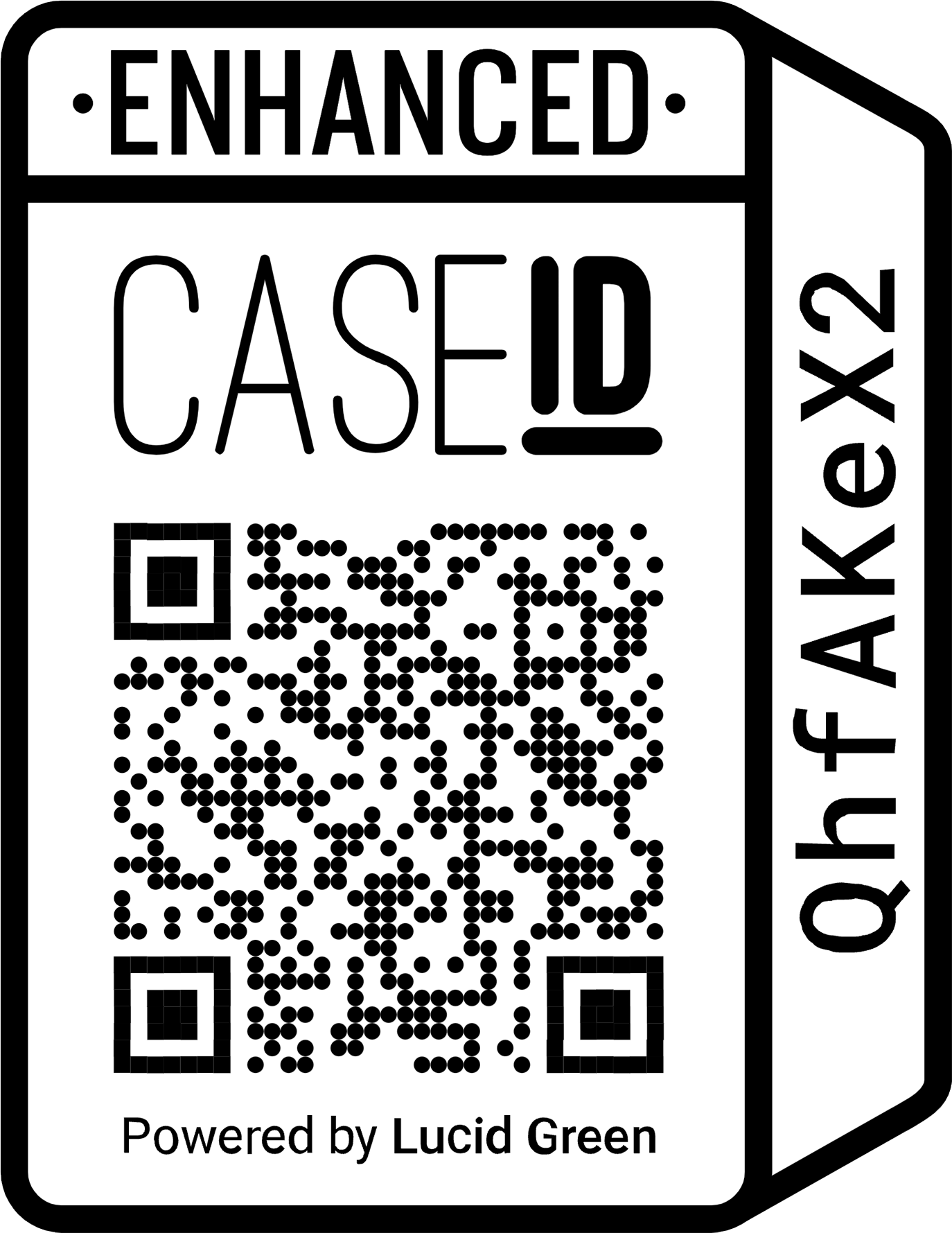Avoiding (Hidden) Costs and Ensuring Accuracy in Cannabis Production
…or just use this
Product Casing
In the fast-paced world of cannabis production, the accurate casing of products plays a crucial role in maintaining efficiency and avoiding potential pitfalls. Incorrect casing refers to the mishandling of products during packaging, labeling, and SKU placement into cases. Such errors may seem minor at first glance, but they can have far-reaching consequences throughout the supply chain. In this blog, we will explore the costs of case errors and highlight the importance of proper casing at the retail level.
Over/Under Products in Case:
One of the most common mistakes in cannabis production is the incorrect counting of products placed within a case. Overpacking or underpacking cases can lead to several complications. If overpacked, it leads to a product loss due to excess inventory and it can significantly impact the company's bottom line. Conversely, underpacking can result in out-of-stock situations, leading to missed sales opportunities and potential damage to brand reputation.
Incorrect Labeling at Unit or Case Level:
Accurate labeling is essential for compliance and consumer trust. Mistakes in labeling, whether at the individual unit or case level, can lead to regulatory issues, increased labor costs to rectify the errors, and the risk of products being rejected by distributors or retailers. Incorrectly labeled products might not meet the standards set by regulators or mislead consumers, leading to adverse effects on the brand's image.
Incorrect SKU Packed into Case:
Assigning the wrong Stock Keeping Unit (SKU) to a case can lead to further complications in the supply chain. It may trigger METRC corrections at the retail level, causing delays and additional administrative burden for both producers and retailers (and in some cases distributors). Moreover, retailers might be hesitant to accept wrongly packed cases, leading to potential rejections and further supply chain disruptions.
Consequences of Case Errors
The consequences of incorrect casing in cannabis production are not limited to financial losses and regulatory issues. These errors have hidden costs that can accumulate over time and have a significant impact on the overall business:
Labor Cost to Remedy:
Rectifying case errors demands additional labor hours, both in the production facility and at the retail level. Employees must spend time inspecting, relabeling, and re-casing products, diverting valuable resources from other essential tasks. This increase in labor costs can affect overall operational efficiency and profitability.
Out of Stock Risk and Opportunity Cost:
Underpacking cases can lead to product shortages on the retail shelves. Customers might turn to competitors when their preferred products are not available, resulting in lost sales and a diminished market presence. The opportunity cost of missed sales due to stockouts can be substantial, impacting revenue and future growth prospects.
100% Product Loss if Overpacked:
Overpacking cases means that excess inventory might not be saleable within a reasonable timeframe, leading to product obsolescence and 100% product loss. This loss represents a waste of valuable resources and reduces the potential for maximizing revenue.
The proper casing is a critical aspect of cannabis production that should not be underestimated. The consequences of incorrect casing go beyond immediate financial losses and can have far-reaching impacts on the entire supply chain. By ensuring accurate product counting, labeling, and SKU placement, cannabis producers can avoid hidden costs, maintain compliance, and enhance their brand reputation in the competitive market. It is essential for producers to implement robust quality control measures to mitigate case errors and foster long-term success in the ever-evolving cannabis industry.

THIS IS NOT JUST A THEORY
IT’S A FACT!
By conducting a thorough survey among our retailer partners, we have gathered some empirical data and the pains they face when it comes to casing errors. Here are our findings:
30-50%
Inventory delivery product quantity packed incorrectly
1-2 DAYS
delay due to mispackaging error
(product getting to the sales floor)
60% of retailers said that mispackaging errors impact their relationship with brands bringing further strain on the brand : retailer relationship with additional costs and delays
Largely Negative
How are mispacked orders with incorrect quantities reconciled?
“We have to follow the vendor's SOPs so it depends which vendor makes the error. We usually change the invoice to match what was received.”
“I count the items twice, once by myself and a second time with the driver. I then put these items aside and at the very end I gather the tags and notify the driver of the incorrect quantity of the products received.”
“The wrong batch will get rejected and we request the vendor for a new invoice to be emailed and order gets updated on Metrc”
How are mispacked orders with incorrect or mixed SKUs reconciled?
“We have to follow the vendor's SOPs so it depends which vendor makes the error. We can generally fix that digitally by virtually manifesting items back to the vendor (then they resend them back to us after making corrections).”
“the wrong batch get rejected and we request vender for new invoice and manifest”
“I complete delivery intake, alert the driver of errors (either wrong SKU that doesn’t match Metrc, or incorrect quantity). These items are set aside with Metrc tags. After driver confirms with their boss, I return products with tags and sign the Manifest. Then wait up to 20 minutes to get a new invoice/manifest. Driver has to stay until new paperwork arrives.”
Other impacts created by mispacked orders
“If it happens too frequently, we will order less.”
“Invoice adjustments”
“We often have to adjust the quantity of the last few units of LucidIDs on hand for a sale, if too many units were sent."
“When scanning QR on the register during the transaction, the description doesn't match the item (wrong item assigned) / QR codes not scanning on the register during transactions/ fulfillment (delivery delays due to QR not scanning”
LucidID and CaseID come flying to the rescue!
Validation:
The purpose of the validation feature is to provide users of LucidSource Mobile and LucidRetail Mobile with a mechanism to check the contents of a CaseID to verify that the contents are correct. In addition, there will be a validation record displayed that will highlight any discrepancies in the case that need to be resolved, along with easy resolutions for those discrepancies.
Casing as a Superpower:
Casing LucidIDs into CaseIDs allows brands to utilize the core benefits of the Lucid Green platform. Casing quite simply brings the sophistication of the modern supply chain to the cannabis industry, which is plagued by various inefficiencies. By casing LucidIDs into CaseIDs, brands can provide verification checks for cases, production reports that track efficiency, and provide seamless ingestion of products into retail dispensaries.
Enhanced CaseIDs:
Enhanced CaseIDs address the widespread issues of incorrect products and incorrect quantity of items being added to cases during production. Brands will now have the ability to add two distinct requirements to their CaseIDs that will be enforced when using LucidSource Mobile to pack cases:
1) Specific Product/SKU and
2) Item Counts
If a Product/SKU requirement is added to an Enhanced CaseID, only LucidIDs for that product/sku can be scanned when packing a case. If an Item Count requirement is added to a CaseID, the exact quantity of LucidIDs must be added to that Enhanced CaseID when packing a case. Requirements can be used independently from one another, and brands can add either or both requirements to their CaseIDs.
Production Efficiency Reporting:
Brands will now have the ability to create and download reports pertaining to the number of Cases and LucidIDs that have been created during a specific time period, and/or for specific batches. Production audits provide a great deal of insight into how productive a particular time period (or shift) is for a manufacturer. For example, this type of data could inform a manufacturer which shifts are the most productive, and which shifts are the least productive. From there, they can use the data to optimize production (hire/fire/adjust personnel based on productivity) which can boost the number (and accuracy) of products they create and pack.
Check out what our partners have to say
Lucid Green makes it easier for me to review our team’s metrics regarding label operations and master casing. Our team is now able to print labels faster compared to our previous method. Additionally, it has made our master casing more efficient with less errors. If errors do occur, I am able to identify the direct source and address the issue promptly.
Les Sedore | METRC Lead @ Common Citizen
LucidID has made it very convenient for me to locate testing COAs for various needs. I have been able to find multiple COAs allocated to an invoice within seconds. The functionality of Lucid to print labels for multiple sets from a source batch efficiently is the most advanced I have seen in over 10 years working with Cannabis.
Thomas Snedeker | Inventory Compliance Manager
Lucid Green's solution is one of the most powerful tools in the Cannabis Industry that I have ever used for a cannabis brand and retailer. It brings a lot of work being done by different teams in the business all into one place, such as testing data, marketing assets, and compliance information. Having all of this together ensures everyone is following the same standards and using the same data. The Lucid Source software offers great flexibility, which allows us to change with the demands of the market and the regulations that come with it. In return, this saves us money, minimizes mistakes and touchpoints, and allows us to learn about the consumers and total market.
Taylor Ladd | Packaging Design and Procurement Manager
















